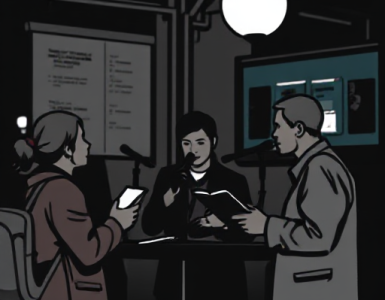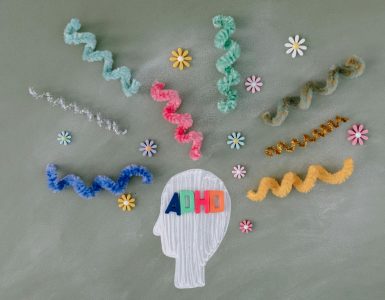Ever wonder why you bought that thing you *totally* didn’t need? Or why you suddenly feel irrationally annoyed with someone? Human behavior is a wild, unpredictable ride, but underneath the chaos lie fascinating patterns. Psychology helps us decipher these patterns, revealing the hidden mechanisms driving our thoughts, feelings, and actions. Let’s unravel some of the more surprising threads in this intricate tapestry.
The Power of Suggestion: More Than Meets the Eye
We like to think of ourselves as rational beings, making conscious, deliberate choices. But subtle suggestions can powerfully influence our behavior, often without us even realizing it. Think about the “placebo effect” – a sugar pill can actually alleviate pain simply because the patient *believes* it will work. This highlights the potent connection between mind and body, driven by expectation and belief. ¿Cómo afecta la música al cerebro?
The Asch conformity experiments provide another stunning example. Participants were asked to judge the length of lines, a seemingly straightforward task. However, when confederates (actors) deliberately gave incorrect answers, a significant percentage of participants conformed, even when they knew the correct answer. This demonstrates the incredible pressure to conform, even when it contradicts our own perceptions. Fear of social rejection is a powerful motivator.
Cognitive Biases: The Mental Shortcuts That Trip Us Up
Our brains are amazing, but they also take shortcuts. These mental shortcuts, known as cognitive biases, can lead to systematic errors in judgment and decision-making. One common bias is confirmation bias – we tend to seek out information confirming our existing beliefs and ignore information that contradicts them. This explains why people can hold onto deeply entrenched beliefs despite overwhelming evidence to the contrary.
Consider the availability heuristic. We tend to overestimate the likelihood of events that are easily recalled, often due to their vividness or recent occurrence. Fear of flying, for instance, is often fueled by the availability heuristic – plane crashes are highly publicized, making them seem more frequent than they actually are, compared to the far more numerous car accidents we tend to not think about so much.
El efecto Halo: Primeras impresiones y más allá
Have you ever met someone and instantly liked or disliked them? That’s the halo effect in action. Our initial impression of a person can color our subsequent perceptions, influencing how we interpret their subsequent behavior. If we find someone attractive, we might unconsciously attribute positive qualities to them, even if there’s no objective evidence to support it. Conversely, a negative first impression can lead us to interpret their actions negatively, even if those actions are neutral or positive. This illustrates how powerful first impressions can be in shaping our relationships and judgments.
El efecto espectador: Difusión de la responsabilidad
The bystander effect is a chilling demonstration of how social context can drastically impact behavior. The more people present in an emergency, the less likely any one person is to help. This is because responsibility gets diffused – everyone assumes someone else will take action. The tragic case of Kitty Genovese, where multiple witnesses failed to intervene during a brutal assault, tragically illustrates this phenomenon. Understanding the bystander effect is crucial in promoting active bystander intervention and changing the social dynamics that encourage inaction.
El poder del encuadre: cómo las palabras determinan nuestras decisiones
The way information is presented, or “framed,” significantly impacts our decisions. Consider a marketing campaign promoting a new product. A campaign that emphasizes the positive aspects (“90% fat-free!”) will likely be more successful than one that highlights the negative aspects (“10% fat”). This is because positive framing is more appealing and persuasive. Framing effects can be seen in many aspects of life, from political campaigns to medical decisions. The way a doctor explains a patient’s condition can influence the patient’s perception of risk and their willingness to undergo treatment. Framing is a powerful tool that can be used to manipulate decisions. Recognizing those manipulations is key to making sound choices.
Priming: Subconscious Influences
Priming is a subtle form of influence, where exposure to one stimulus influences our response to another, often unconsciously. For instance, studies have shown that exposing people to words related to aging (e.g., “wrinkled,” “forgetful”) can actually slow down their walking speed. This demonstrates how subtle cues in our environment can unconsciously shape our behavior. Priming is a constant background effect, influencing our judgments, emotions, and even physical actions.
The Illusion of Control: Our Need to Believe We’re in Charge
Humans have a deep-seated need to believe they are in control of their lives. But sometimes this belief is an illusion. We often overestimate our ability to predict and influence events, leading to unrealistic expectations and disappointment. Gambling is a classic example – the belief that we can “beat the odds” drives many people to continue gambling despite negative consequences. This need for control can be both a source of motivation and a source of suffering, dependent upon our ability to recognize the limits of control within the constraints of reality.
Understanding these hidden patterns is not about manipulating others; it’s about gaining self-awareness and making more informed decisions. By understanding the quirks of the human mind, we can build stronger relationships, make better choices, and navigate the complexities of human interaction with greater empathy and insight.

























Añadir un comentario